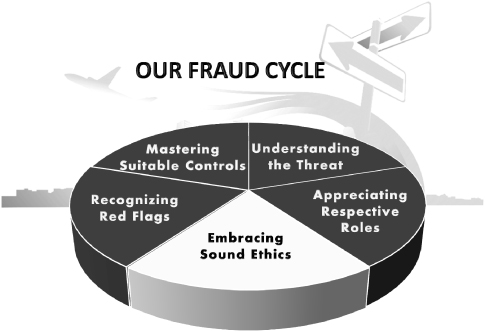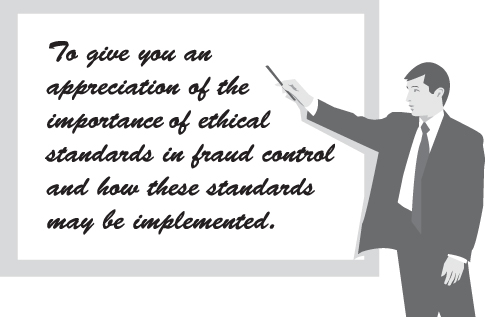12
Building Your Fraud Smart Toolkit
In this part of the book we have considered the way in which a moral compass can ensure the ethical behaviour of an organization with in-built facilities for employees and others to report any concerns about wrongdoing. We can restate that this book is based around the Fraud Smart cycle, which covers five key aspects of helping non-specialists get to grips with fraud at work. This is repeated in Figure 12.1.
Figure 12.1 The Fraud Smart cycle.

This chapter sits within the third part of the Fraud Smart cycle, Embracing Sound Ethics, and covers the need to build an ethical basis to ensure that anti-fraud measures have a good chance of working to reduce fraud and abuse. Here we cover the task of helping you improve your personal Fraud Smart toolkit.
KEY LEARNING OBJECTIVES
Let’s return to the learning objectives that were set for this part of the book:

This chapter gives you the chance to reflect on the key conclusions that have been developed in the chapters in this part of the book and how they can become part of your personal development strategy.

| Key Conclusions | Personal Fraud Smart Toolkit |
| 9.1 The moral compass needs to be held steady to ensure that ... |

